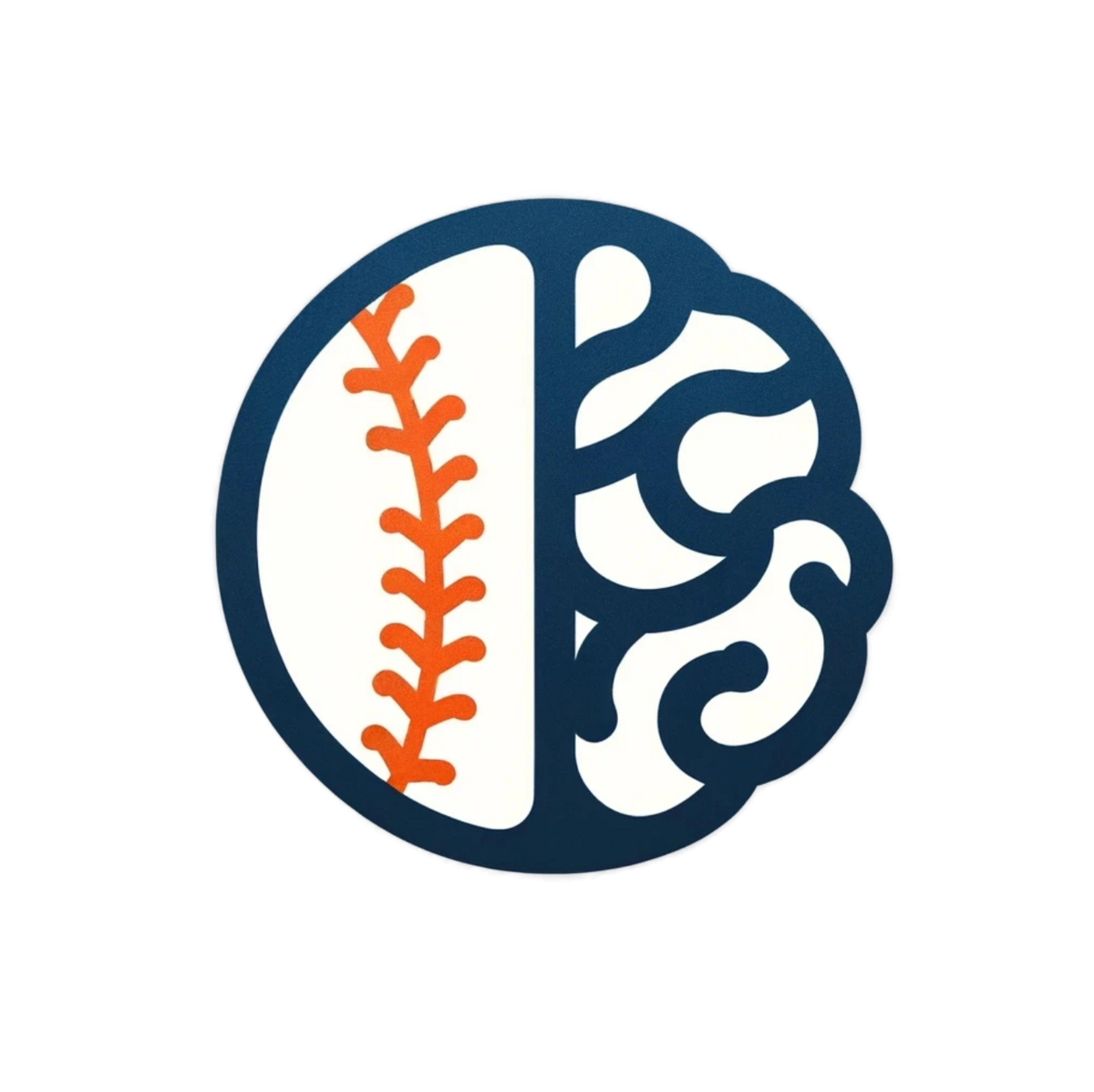📖 What I’m Reading: Thinking, Fast and Slow, Daniel Kahneman
After a couple of weeks away—first on our North Carolina trip, then at a mini-camp for the National Team in Wien—I’m back on the grind! While traveling, I picked up Thinking, Fast and Slow in the Munich airport, and it's been a fascinating read. The book breaks down how our brain operates in two systems:

Reading: “Thinking, Fast and Slow.”
🔥 System 1: Instinct & Reaction (Baseball’s Muscle Memory)
System 1 is automatic, fast, and effortless—like the skills we train until they become second nature. A hitter recognizing a curveball, a shortstop reacting to a sharp grounder, or a catcher framing a borderline pitch all rely on instinct built through repetition.
💡 What this means for the season:
✔️ Train skills until they’re automatic—so when pressure hits, your body reacts without overthinking.
✔️ Defensive plays, baserunning reads, and pitch recognition must be ingrained through consistent, high-rep training.
🧠 System 2: Focus & Mental Toughness (The Strategic Side of the Game)
System 2 is slow, deliberate, and effortful—like a pitcher deciding how to attack a hitter, a batter working the count, or a coach adjusting defensive positioning. This is where mental discipline and preparation come in.
💡 What this means for the season:
✔️ Players must train focus—learning when to lock in and when to trust their instincts.
✔️ Game scenarios should force players to think under pressure (situational hitting, defensive shifts, baserunning reads).
✔️ Mental conditioning is just as important as physical conditioning—fatigue leads to System 1 errors when System 2 should be in control.
👀 The Gorilla Effect: Staying Present Under Pressure
Just like in the Invisible Gorilla Experiment, distractions can make us miss what’s right in front of us. In baseball, that could mean losing track of the count, missing a pitcher tipping pitches, or a fielder forgetting their cutoff responsibility.
💡 What this means for the season:
✔️ Situational awareness needs to be drilled—players must stay locked into the moment and block out distractions.
✔️ Coaches must guide attention—focusing on what really matters (adjustments, strategy, mindset) and tuning out unnecessary noise.
⚾ Key Takeaway: Baseball is a System 1 sport that requires System 2 discipline.
Repetition builds instinct—Fundamentals must become second nature.
Focus sharpens execution—Smart decisions and presence under pressure matter.
Awareness eliminates blind spots—We must see the game as it is, not how we assume it to be.
A long season means fatigue, stress, and failure will come. But if we train our instincts and our focus, we’ll be ready for every challenge ahead.
🎥 What I’m Watching: Netflix's “Sprint, Season 2 🏃♂️”
Sprint Season 2 follows elite sprinters navigating training, media scrutiny, and the pressure of Olympic competition. What stood out to me is how you don’t just show up at the Olympics—you have to qualify for your country’s team first.

💡 What this means for our team:
🏆 Earning your spot—With roster changes, some players will be stepping into the Austrian Baseball League for the first time. Just like sprinters must prove themselves at trials, players must prove themselves in practice before earning game time.
⏳ Preparation starts now—Balancing school, work, and training is key so players aren’t overwhelmed once the season starts.
⚾ Commitment matters—If you’re serious about the team, you’ll plan vacations wisely, help with umpiring, fundraising, and show up for your teammates.
🚨 No one is promised a spot. You earn it through preparation and performance.
💡 What I’m Learning – The Power (and Challenge) of Leadership
The team—not me—recently voted on two team captains: Laurin & Erwin. Leadership is not about age or ability—it’s about earning trust and setting the standard.
Yet, I’ve noticed some resistance to young Laurin. Not because of what he’s saying (most of his messages come directly from me) but likely because of his age.
👀 This reminds me of a fascinating study:
A single toxic team member can cripple an entire group. Will Felps’ research showed that groups with a negative teammate performed 30-40% worse than groups without one.
☠️ The "Bad Apple" Effect:
The Depressive Pessimist—Always complains, doubts the group’s success.
The Jerk—Criticizes but never offers solutions.
The Slacker—Doesn’t care, puts in minimal effort.
❌ Negativity spreads. Players start mirroring toxic behavior, leading to dysfunction. The only teams that overcame this? The ones with strong leadership and a culture of psychological safety.
💡 What this means for our team:
✔️ If you’re not part of the solution, you’re part of the problem.
✔️ Leaders need support—captains can’t change the culture alone.
✔️ Respect the team’s choice. If you don’t like who was voted in, be part of making the team stronger anyway.
This winter, we’ve come out of a toxic situation. Let’s make sure we move forward as a team, not a collection of individuals.
✍️ What I’m Writing: Finalizing Lineups & Strategic Adjustments
With all our imports signed for the season, I’m mapping out lineup scenarios and how we can maximize our strengths against different opponents.

Austrian LineUp Card
✔️ Which matchups favor our hitters?
✔️ How can we utilize speed, power, and defensive versatility?
✔️ What weaknesses do we need to address before we get outside?
This last phase of preparation is crucial before we move into the fun part—practice games and outdoor training.
💬 What’s Your Takeaway This Week?
What part of this week's insights hit home for you? Let me know!
Until next time, keep grinding, stay focused, and prepare for the season ahead. 💪🚀



